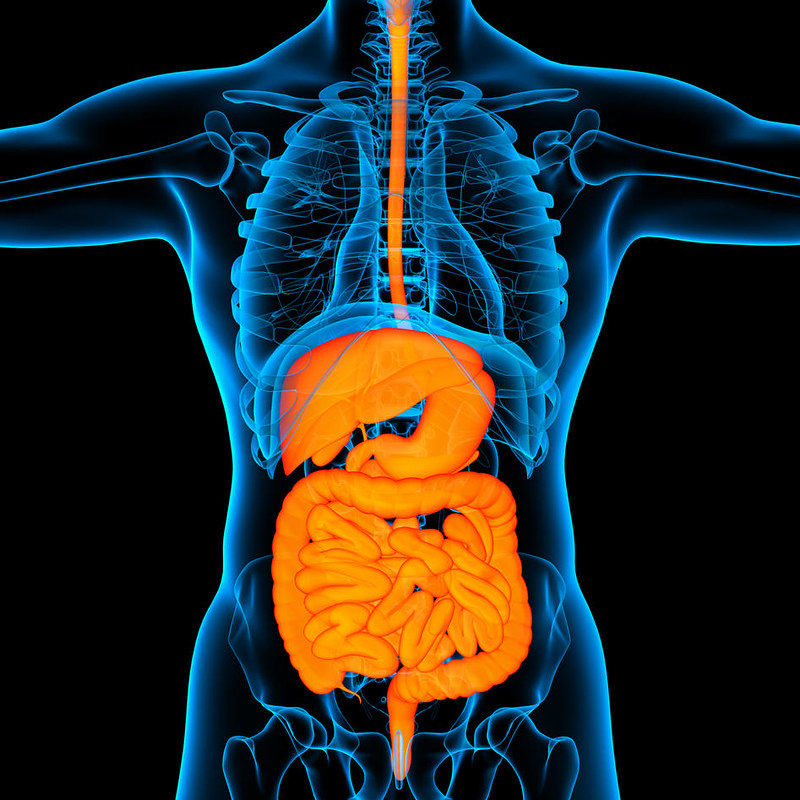SHARES

“My work is very stressful and hectic. I have no time and no appetite to eat. Despite not finishing even half of my meal, I would get a very bloated stomach and bad heartburn. My colleagues are telling me to relax and stop thinking too much about work. In fact, I try not to.”
“Is my stomach too small? But, I’m getting more and more worried about my health.” Linda, 24, who works as a banker, is troubled with illness from head to toe – headache, muscle pain, dry red eyes, bad breath, indigestion, diarrhea, constipation… and the list goes on.
How is the Brain Related to the Stomach?
Our brain has extensive direct nerve connection (vagus nerve) to our gut. On the other hand, our gut is full of bacteria (microflora) that live symbiotically with us. They depend on the food we eat and constantly produce signal proteins that talk to the nerve endings in our stomach.
Meanwhile, our stomach also signals our brain all the time by producing hormones or by sending signal through nerves. Therefore, our gut is often referred to as our “second brain”. Our brain can invariably affect our digestive system and the reverse is also true.
A Deeper Look Into Anxious Thoughts and Indigestion
Anxiety As Survival Emotion
As described in the United States Military Survival Manual (FM21-76), anxiety is one of the major survival emotions. In stressful times, this emotion allows us to learn quickly about our surrounding situation, risks and possibilities.
More often than not, anxiety is a result of fear when facing uncertainty that may affect our survival and well-being. For instance, for self-defense, ability to move away from danger and towards the desired, aid in recovery from injury/illness, rest and relieving stressful emotions.
Concerns about shelter, clothing, food/water, entertainment, material security and belonging to a social group etc. In short, life stresses are everywhere. Everyone of us can be caught up in anxious thoughts and caught unprepared.
Our Body During Anxiety
As we can see, fear associates with anxiety. At times of uncertainty, our body releases stress hormones and our brain prepares us for “fight-or-flight” mode. Initially, our body mobilizes all kind of stored energy and circulates them fast. This results in a net flow of blood with nutrients to our hands, legs and brain.
When the energy is used internally, our body freezes to analyze the situation before acting on it. However, too much of it can throw us into panic attack or uncontrolled anxiety. In this context, the generated collective energy has to go somewhere. Usually, into actions and movements. Hence, we can work solutions out faster, run faster, hit harder etc. Sometimes, we pace up and down or fidget, other times we might throw an anger outburst.
Why Does Our Body Fail to Digest During Anxious Times?
Good digestion requires blood to flow to our gut instead of the brain, hands and legs. Indeed, as our stress hormones build up, we get hungrier with bigger appetite. In this sense, eating is similar to “fighting” mode as we shovel food down our mouth.
However, if we continue to fuss, think and run around vigorously expensing our energy, our food just stays in our stomach undigested. That is why we have bloated stomach, heartburn, nausea, tummy pain, diarrhea and even vomiting!
If the stress persists for a long time, our body can burnout. We simply run out of energy to move. Then, we feel tired, fatigue, no appetite to eat, hazy mind, muscle pain here and there, and even constipate on our long-retired digestive system.
Tips on Preventing Nervous Indigestion
1. Always Know When To Stop
It is always good to learn to give up. Nature has its way to make us give up on what simply doesn’t work. For example, burnout. Often times, we have to give up our unrealistic expectations, and reevaluate things as what it is. Make it a good habit to stop every now and then, rest, recharge, learn from your progress, improve your plan and continue the grind!
2. The Transition
You cannot get good digestion and anxious energy for survival at the same time. If you continue to eat while working on stressful desk work, chances are you cannot complete your task efficiently and you’ll feel sick from indigestion.
Try to imagine a restful environment for good digestion. Set it up purposefully. Most importantly, dedicate the space or even the time for only one function – good digestion.
You can even set up a dedicated space for your anxious energy to learn things rapidly. For instance, your notebook. By doing so, you are protecting a good function or energy with real space, time and tangible asset. This allows you to get the most out of the desired function more effectively, with greater focus, and better time efficiency.
The key issue lies in moving from one energy state to another smoothly – the transition. Pay attention to how your transition is set up and how much time is given. This can be as simple as a small walk to get a cup of refreshing water.
Conclusion
Emotions affect your body’s daily functioning to a large extent. At stressful times, anxiety increases the speed of thinking and prepares your body for action. However, your body (and your digestive system) can wear down before the problem is solved. Therefore, it is important for us to breakdown big and stressful problems into small bits and work it out sustainably.
Find a GP/Family Doctor or Psychologist in Malaysia, on GetDoc
Find a GP/Family Doctor or Psychologist in Singapore, on GetDoc
References:
1. Saha L. Irritable bowel syndrome: pathogenesis, diagnosis, treatment, and evidence-based medicine. World J Gasteroenterol. 2014 Jun 14; 20(22):6759-6773.
2. Bjorkman DJ. Anxiety is associated with functional dyspepsia. Gastroenterology. 2015 May; 148:928 (http://dx.doi.org/10.1053/j.gastro.2015.01.039)
by Chang Xian
View all articles by Chang Xian.







